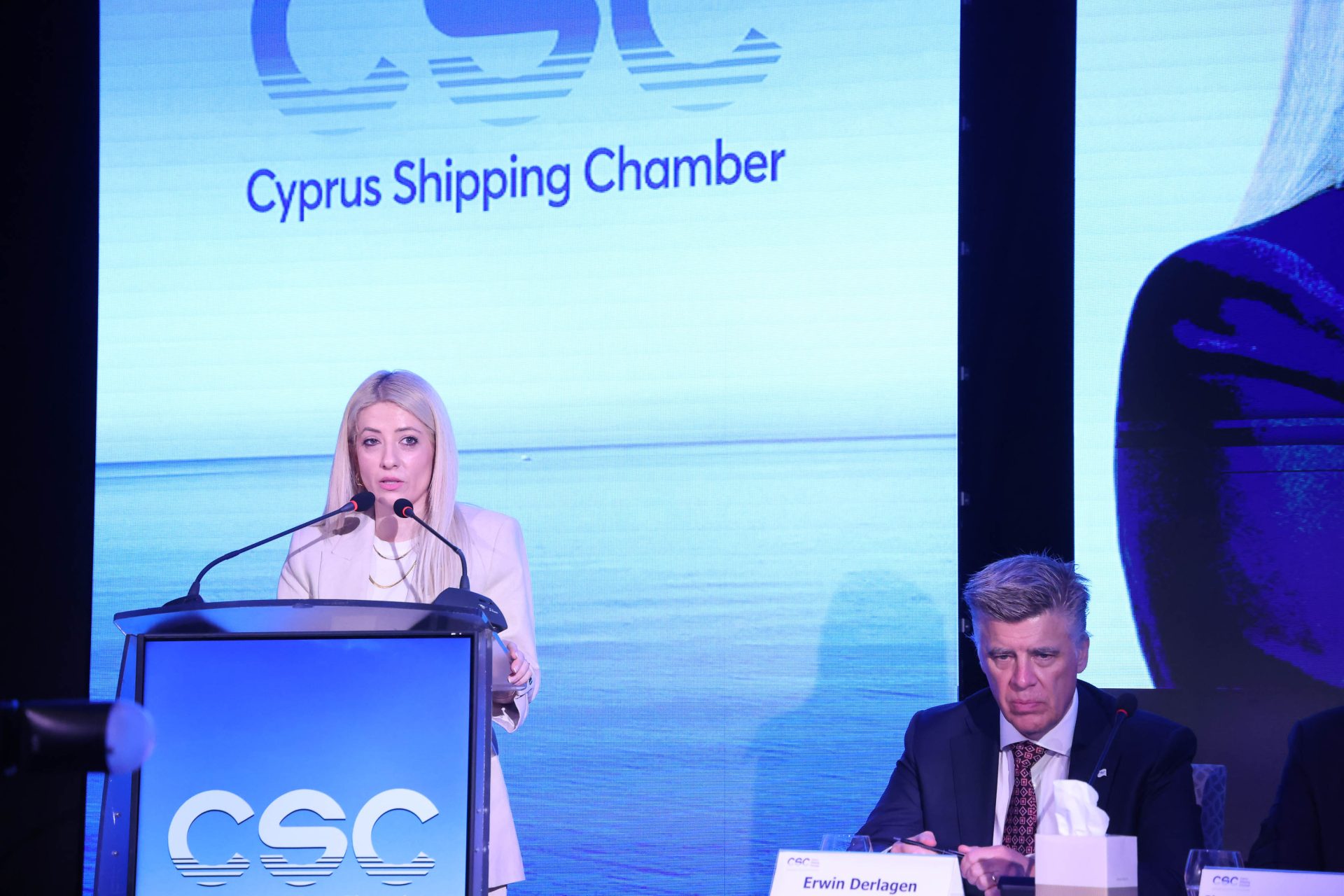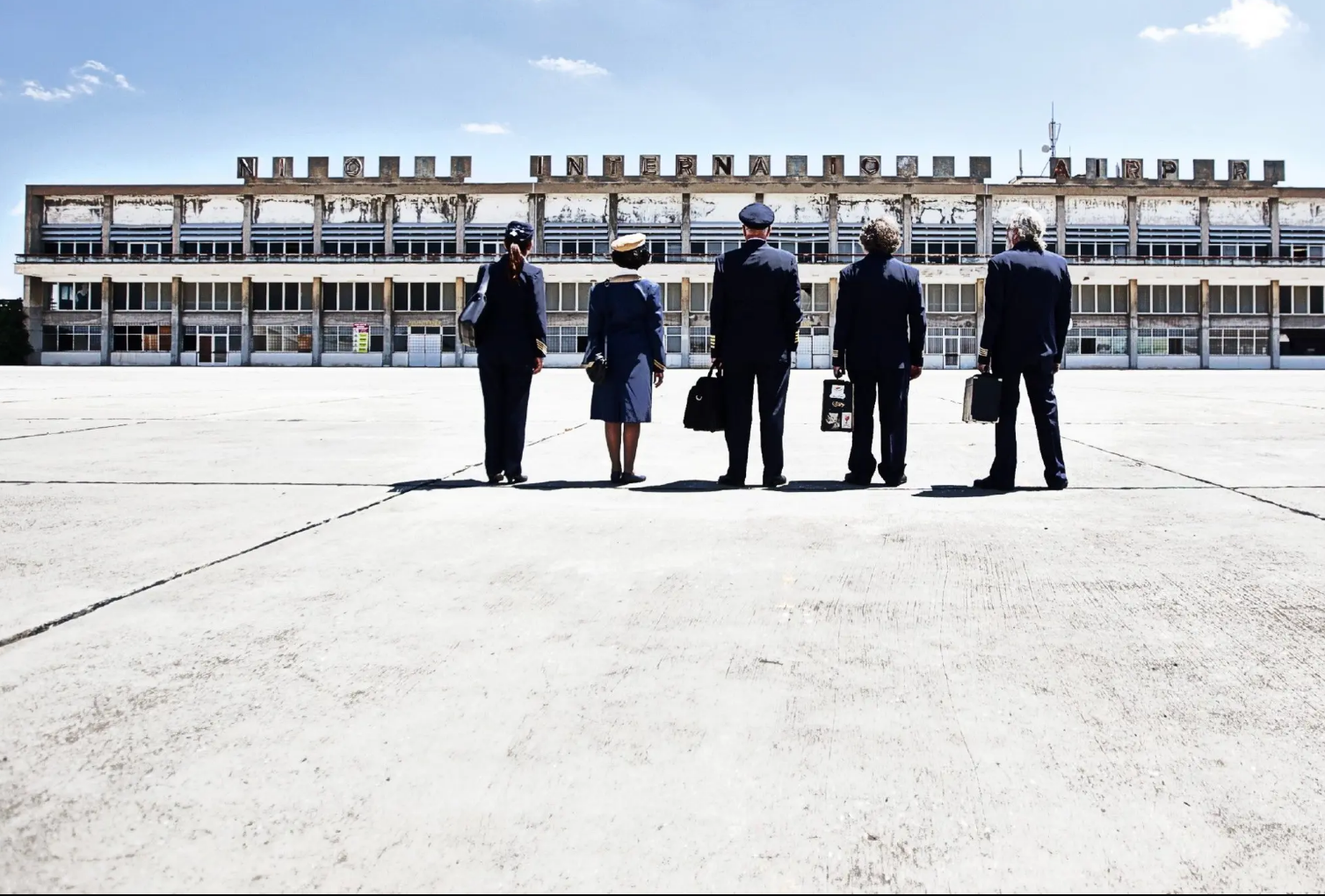Cyprus’ maritime heritage will only be fully restored when ships under the Cypriot flag sail freely again from Famagusta and Kyrenia, House president Annita Demetriou said on Tuesday, expressing support for renewed efforts to resume negotiations on the Cyprus issue.
Addressing the 36th Annual General meeting of the Cyprus Shipping Chamber (CSC) in Limassol, Demetriou described the maritime sector as a strategic key of the economy and a “source of national pride”, reaffirming the House’s commitment to strengthening the industry in line with European and international obligations.
She pointed to Cyprus’ determination to maintain its global standing in shipping, despite geopolitical instability and regional conflicts, notably the war in Ukraine and the ongoing unrest in the Middle East.
“Cyprus continues its determined efforts to serve as a reliable and stable partner,” she said, noting that the country currently hosts the third largest merchant fleet in the EU and the eleventh worldwide, employing more than 9,000 professionals on land and over 55,000 seafarers at sea.
Demetriou acknowledged the pace of change in the global maritime environment and said Cyprus remains fully committed to sanctions and international frameworks, underlining that the country must respond to emerging challenges “with responsibility and clarity”.
She stressed that maintaining and enhancing the country’s competitive advantages should be a top priority, especially amid the transition to greener shipping.
“Cyprus is committed to this green transition,” she said, citing targeted incentives for the early adoption of low and zero-carbon technologies.
Touching on the legislative side, Demetriou highlighted that the House passed at least 22 shipping-related laws in 2024 alone and is currently reviewing revisions to laws governing recreational shipping and marine leisure activities.
These reforms aim to modernise safety standards, stimulate maritime tourism, and open new opportunities for ports and coastal communities.
She welcomed the forthcoming launch of the Maritime Court, calling it a milestone for the local shipping ecosystem, as it will offer effective legal resolution for maritime disputes.
“Shipping remains, above all, a people-centred industry,” she said, noting the importance of maritime education and the welfare of seafarers.
She also praised the Chamber’s work in representing Cyprus internationally and bridging industry stakeholders.
Demetriou reaffirmed parliament’s readiness “to listen and act to support the continued success of the sector”, and said that Cyprus aims to align with the three core pillars shaping the future of global shipping: sustainability, digitalisation, and resilience.
On the Cyprus issue, she said that achieving a comprehensive and lasting solution remains vital, adding that “only then will we see Cypriot-flagged ships sailing freely from our ports in Famagusta and Kyrenia again, restoring what our maritime heritage has long been deprived of”.
She voiced support for the President Nicos Christodoulides and the UN Secretary-General ahead of the expected meeting in Geneva, expressing hope for a positive outcome.
Also addressing the meeting, outgoing CSC president Themis Papadopoulos reflected on the resilience of Cyprus shipping throughout 2024.
He described the sector as “one of the oldest and most vital pillars of our modern economy”, noting that it accounts for approximately 7 per cent of GDP and continues to demonstrate strong growth potential.
He revealed that, as of early 2025, CSC member companies collectively manage a fleet of more than 2,800 ocean-going vessels, representing over 108 million gross tonnes.
Beyond its economic contribution, he said, the sector plays an essential role in society, facilitating 98 per cent of goods and raw materials imported to Cyprus.
Papadopoulos, who formally handed over the presidency to Andreas Neophytou, said “the CSC will maintain its close collaboration with the Deputy Ministry of Shipping to ensure shared goals and vision remain aligned.”







Click here to change your cookie preferences